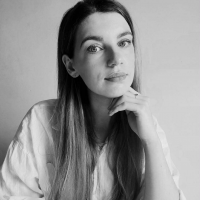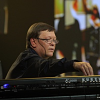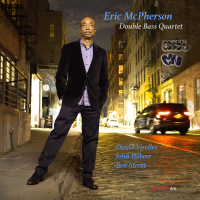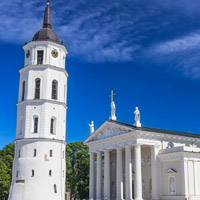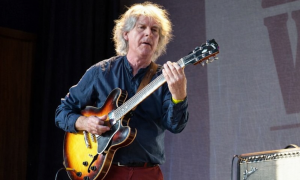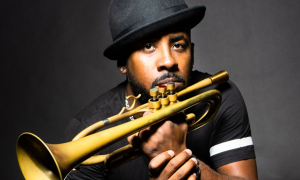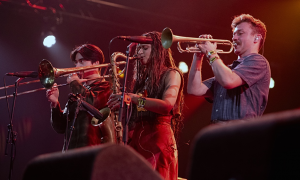Home » Jazz Articles » Live Review » Dainius Pulauskas Acoustic Group at the Christopher Summ...
Dainius Pulauskas Acoustic Group at the Christopher Summer Festival
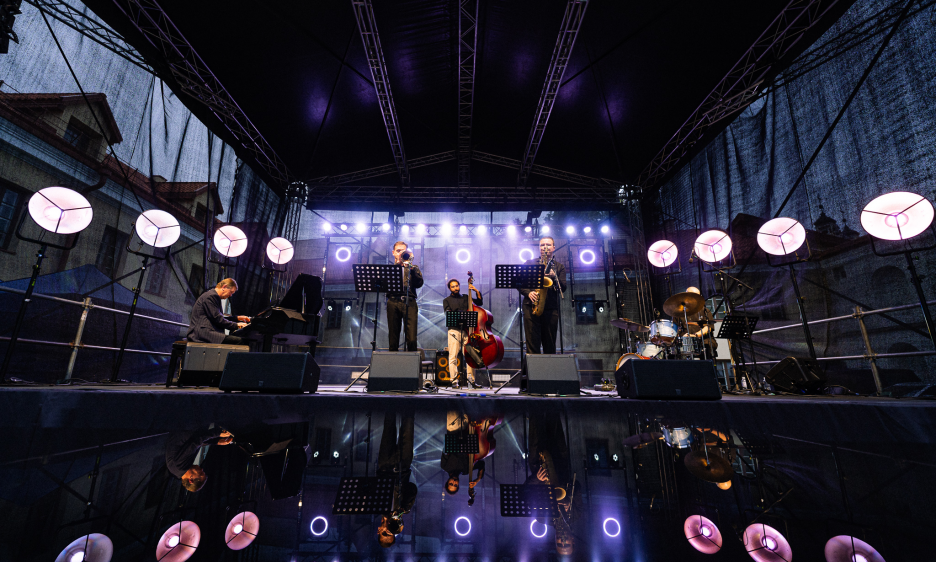
Courtesy Modestas Endriuška
For the audience gathered in Vilnius this August evening, it was an opportunity to experience exceptional musicianship and reflect on themes of memory, change and continuity—captured through immediate and memorable sound.
Adomas Mickevičius LibraryChristopher Summer Festival
Vilnius, Lithuania
August 5, 2025
Vilnius Christopher Summer Festival has long demonstrated an ability to present quality concerts that connect with cultural roots and artistic ambition. On this warm August evening, in the courtyard of the Adomas Mickevičius Library, the festival featured pianist and composer Dainius Pulauskas with his Acoustic Group. The evening included a program of original compositions and reimagined works by Polish jazz legend Krzysztof Komeda. For Lithuanian audiences, this was more than just another festival appearance. For nearly three decades, Pulauskas, one of the key figures in Lithuanian jazz, has been seen more frequently on international stages than at home. His performances abroad are extensive, with shows across Europe and Asia, but local appearances have become less frequent. This concert, organized in collaboration with the Vilnius Jazz Festival, provided a musical conversation between original work and historical memory, between national identity and a broader European jazz tradition.
Dainius Pulauskas Acoustic Group featured Pulauskas on piano, Valerijus Ramoška on trumpet and flugelhorn, Liutauras Janušaitis on tenor saxophone and flute, Arman Isojan on double bass, and Domantas Razmus on drums. Together, they embodied the traditional jazz quintet format. This acoustic identity is notable given Pulauskas's longstanding parallel work in jazz fusion, where electronics and amplified textures often dominate. Here, by contrast, the absence of electronics gave the music a distinctive clarity. It was not about retreating into tradition but exploring what can be uncovered when nothing stands between the instruments' sound and the listener's ear. The ensemble's tone was luminous, well-balanced, and open. Every note carried significance, every pause was audible. The group played with sensitivity to space, giving their interactions air rather than density. In doing so, they reminded the audience how influential the quintet format remains in modern jazz.
The setlist of the concert was well curated, and during the evening unfolded like a narrative. Opening with Pulauskas' "Davida," the concert established momentum through rhythmic insistence and clear thematic direction. "Ballade" followed with a contrasting lyrical, spacious, almost introspective tone. The sequencing made the listener attentive to individual pieces and how moods shifted across the evening. "In the Street" brought urban energy, its pulse brighter and more assertive, before focusing briefly on bassist Isojan's composition "Armania." Here, the ensemble gave space to another voice within the group, and Isojan 's personal and charming piece chimed with the evening's aesthetic. The program then focused on Komeda. Four of his works were highlighted: "Rosemary's Baby," "Crazy Girl," "The Fearless Vampire Killers" and "Cherry." Komeda, a figure whose music influenced European jazz and film scoring through his collaborations with Roman Polanski, remains a touchstone for musicians throughout Central and Eastern Europe. Avoiding the temptation to overly emphasize Komeda's cinematic associations, the interpretations by the Dainius Pulauskas Acoustic Group were compelling, respectful of Komeda's melodic lines but unafraid to vary dynamics and phrasing. The quintet avoided two pitfalls—naïve replication or overly dramatic deconstruction, and instead presented Komeda as a living influence, capable of inspiring new improvisational dialogues. The latter part of the concert revisited Pulauskas' compositions. "Humoresque" was witty, rhythmically playful and lively. "White," dedicated to his mother Aldona, was an emotional counterbalance: expansive, restrained and lyrical. It may have been the most moving moment of the evening, with its quiet dignity. The encore, "La Palma," was a closure without finality, with flowing lines suggesting continuity rather than an end. It reminded us that Pulauskas' compositional voice remains capable of humor, gravity, pulse and stillness.
Overall, the concert was enhanced by the ensemble's cohesion and the quality of the sound itself. In open-air festival settings, acoustic jazz often risks being dulled by amplification that diminishes nuance. Here, the sound design was warm, balanced and articulated, allowing every detail to reach the audience without distortion or excess. It was a reminder that the impact of acoustic jazz depends heavily on giving it proper space and care. Each musician performed individually but without ego. Ramoška's trumpet brought lyricism and sharpness equally; Janušaitis transitioned smoothly between the depth of tenor saxophone lines and the lighter sound of flute; Isojan's bass provided both stability and melodic insight; Razmus' drumming was precise, never overpowering, and sensitive to dynamics. Pulauskas played with restraint and confidence—guiding the ensemble while leaving space for others to shape the collective sound.
This program's presentation showed us Pulauskas's ongoing influence in Lithuanian jazz and Komeda's lasting significance in European musical imagination. For the audience it was an opportunity to experience exceptional musicianship and reflect on themes of memory, change and continuity—captured through immediate and memorable sound. The standing ovation at the end of the concert confirmed that this was not just appreciation but a recognition of a rare and profoundly resonant jazz music evening by Dainius Pulauskas Acoustic Group at the Christopher Summer Festival.
Tags
Live Review
Dainius Pulauskas
Ieva Pakalniskyte
Lithuania
Vilnius
Krzysztof Komeda
Vilnius Jazz Festival
Valerijus Ramoška
Liutauras Janušaitis
Arman Isojan
Domantas Razmus
PREVIOUS / NEXT
Support All About Jazz
 All About Jazz has been a pillar of jazz since 1995, championing it as an art form and, more importantly, supporting the musicians who make it. Our enduring commitment has made "AAJ" one of the most culturally important websites of its kind, read by hundreds of thousands of fans, musicians and industry figures every month.
All About Jazz has been a pillar of jazz since 1995, championing it as an art form and, more importantly, supporting the musicians who make it. Our enduring commitment has made "AAJ" one of the most culturally important websites of its kind, read by hundreds of thousands of fans, musicians and industry figures every month.

